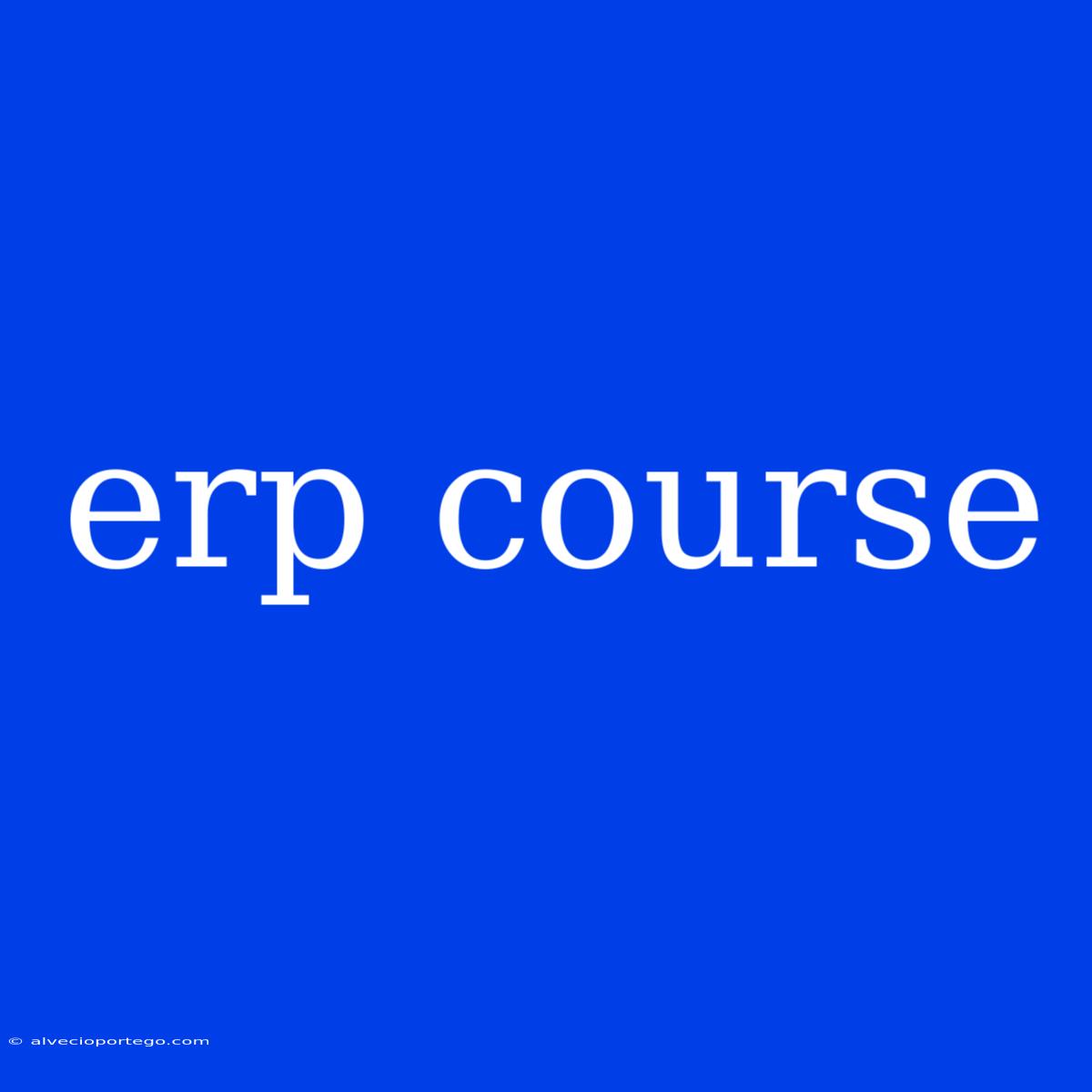ERP Course: A Comprehensive Guide to Mastering Enterprise Resource Planning
Enterprise Resource Planning (ERP) systems are the backbone of modern businesses. They integrate all aspects of a company's operations, from finance and accounting to supply chain management and human resources, into a single, unified platform.
Why Learn ERP?
Learning ERP can be highly beneficial for individuals and organizations alike. Here's why:
- Career Advancement: ERP professionals are in high demand, with opportunities across various industries and roles.
- Improved Efficiency: Understanding ERP systems empowers you to streamline processes, reduce errors, and improve productivity.
- Enhanced Decision-Making: ERP provides real-time data insights, enabling better informed and data-driven decisions.
- Increased Revenue: By optimizing operations and customer service, ERP can help businesses increase revenue and profitability.
What to Expect in an ERP Course:
An effective ERP course should equip you with a strong foundation in:
- ERP Fundamentals: Key concepts, terminology, and the history of ERP systems.
- Modules and Functionality: Deep dive into different ERP modules, including finance, inventory, production, sales, and human resources.
- Implementation and Configuration: Understanding the implementation process, customization options, and integration with existing systems.
- Reporting and Analytics: Utilizing ERP data for generating reports, analyzing performance, and identifying areas for improvement.
- Best Practices and Industry Standards: Learning how to implement ERP effectively and adhere to industry best practices.
Types of ERP Courses:
1. Online Courses: These offer flexibility and self-paced learning, often available on platforms like Coursera, Udemy, and edX.
2. Bootcamps: Short, intensive programs that provide hands-on training and project-based learning.
3. University Programs: Degree programs in business administration or information technology often include specialized ERP courses.
4. Vendor-Specific Training: Training programs offered directly by ERP software vendors, providing in-depth knowledge of their specific systems.
Choosing the Right ERP Course:
- Define Your Learning Objectives: Determine your career goals and the specific ERP knowledge you need.
- Identify Your Learning Style: Consider online, in-person, or blended learning options that best suit your preferences.
- Evaluate Course Content: Look for courses that cover the latest industry trends and include practical exercises and case studies.
- Check Instructor Qualifications: Ensure the instructors have relevant experience and expertise in ERP.
Beyond the Course:
- Certification: Obtain relevant certifications to demonstrate your knowledge and expertise.
- Networking: Connect with other ERP professionals through online communities, industry events, and professional associations.
- Stay Updated: The ERP landscape is constantly evolving, so it's crucial to stay abreast of the latest advancements.
In conclusion, an ERP course can significantly enhance your career prospects and empower you to contribute effectively in the digital age. By choosing the right course and committing to continuous learning, you can become a valuable asset to any organization seeking to leverage the power of ERP systems.

